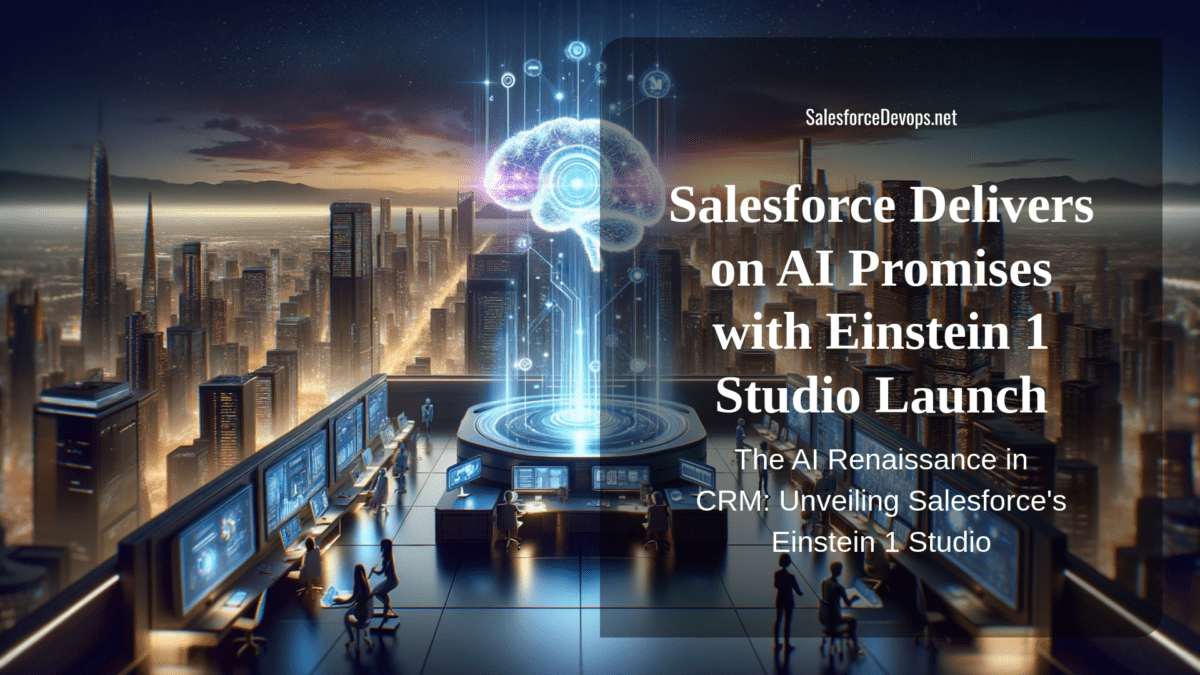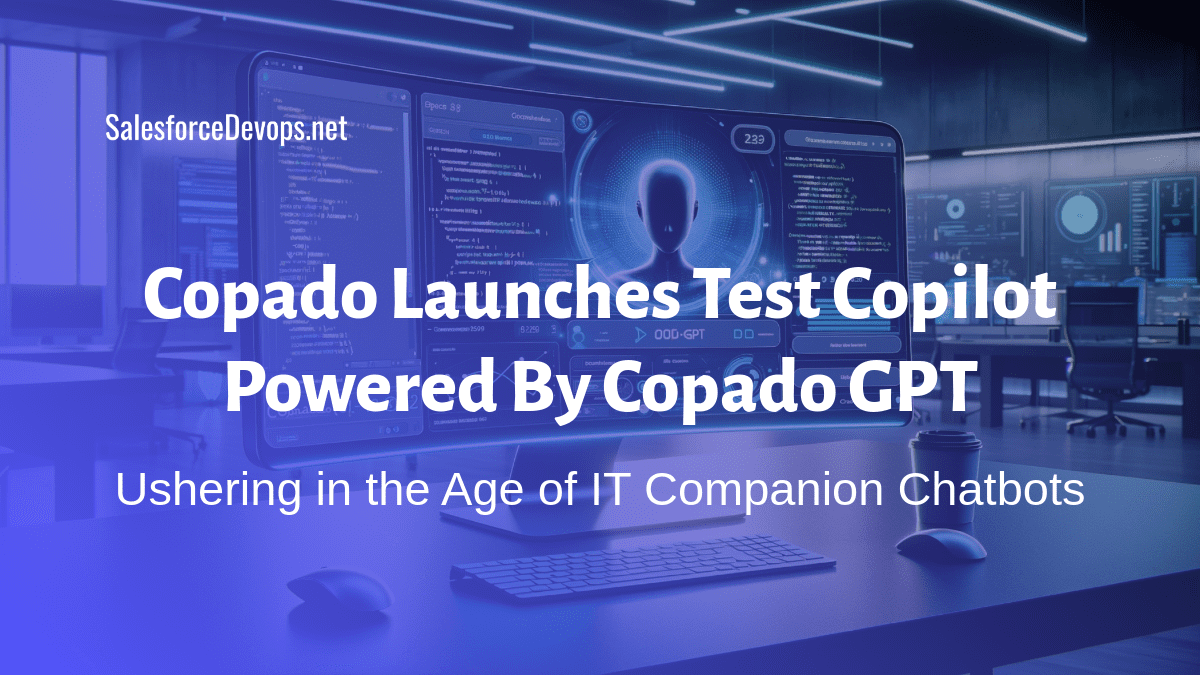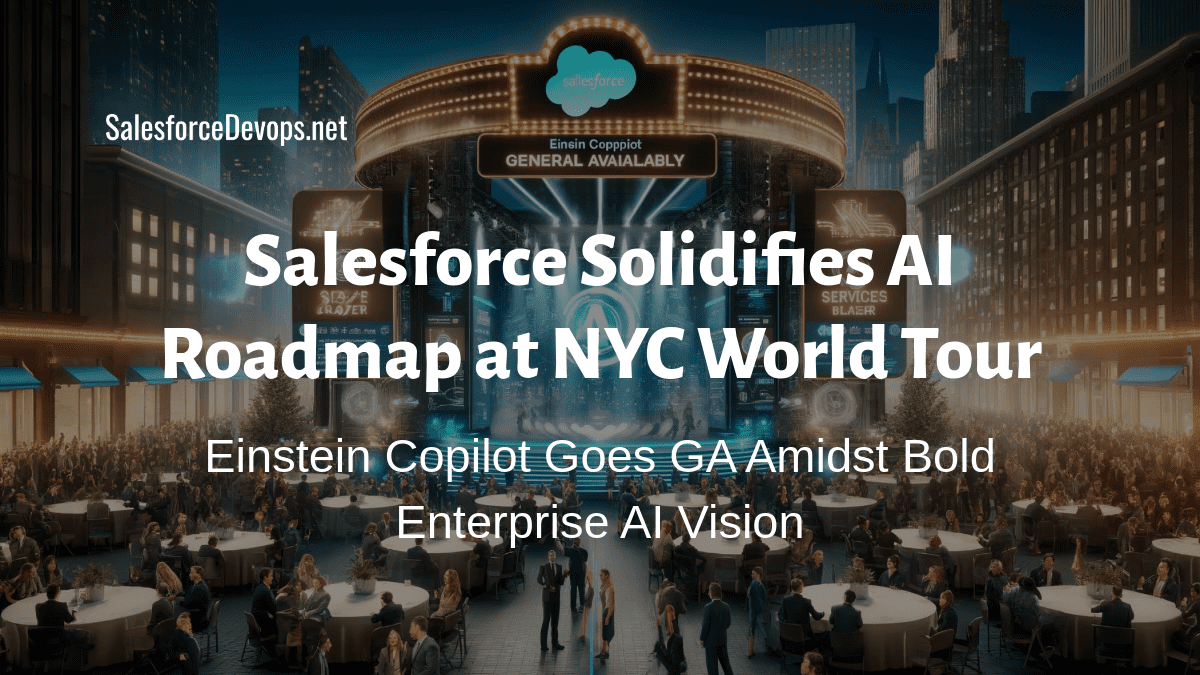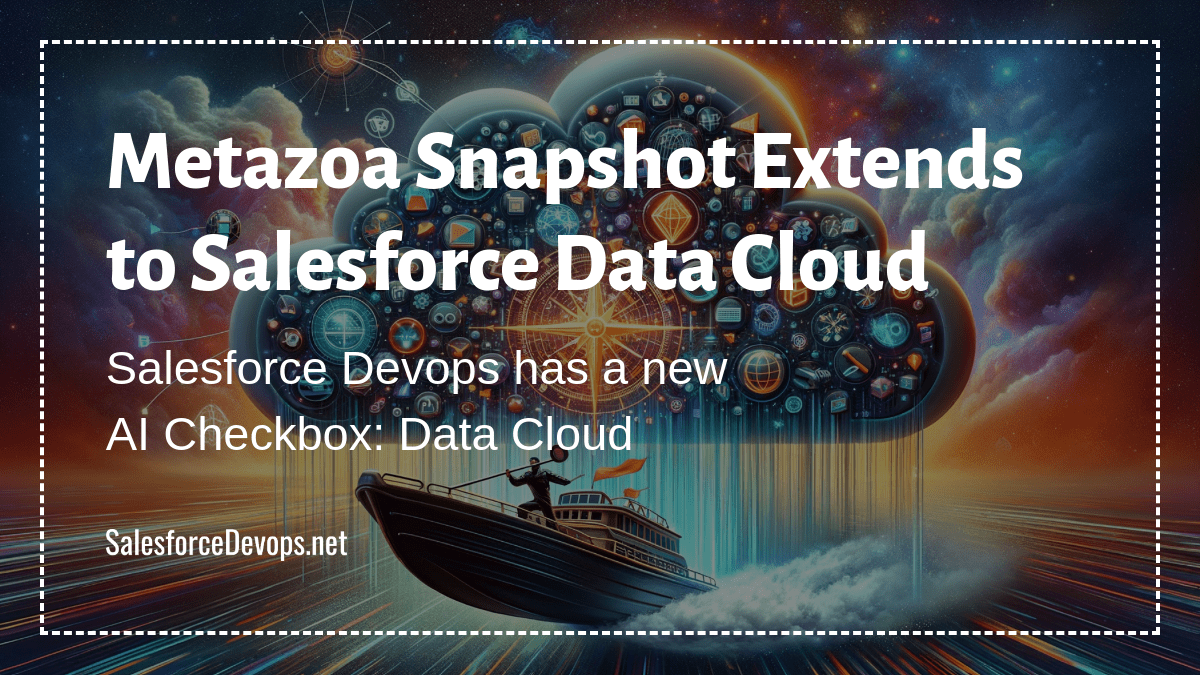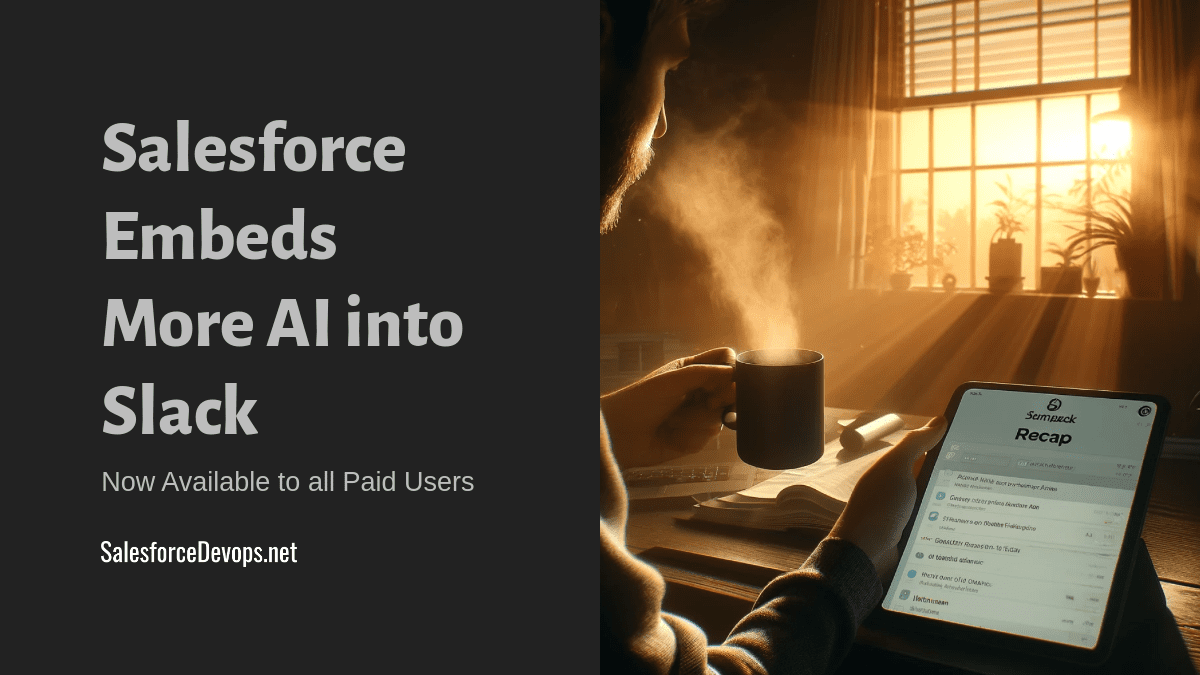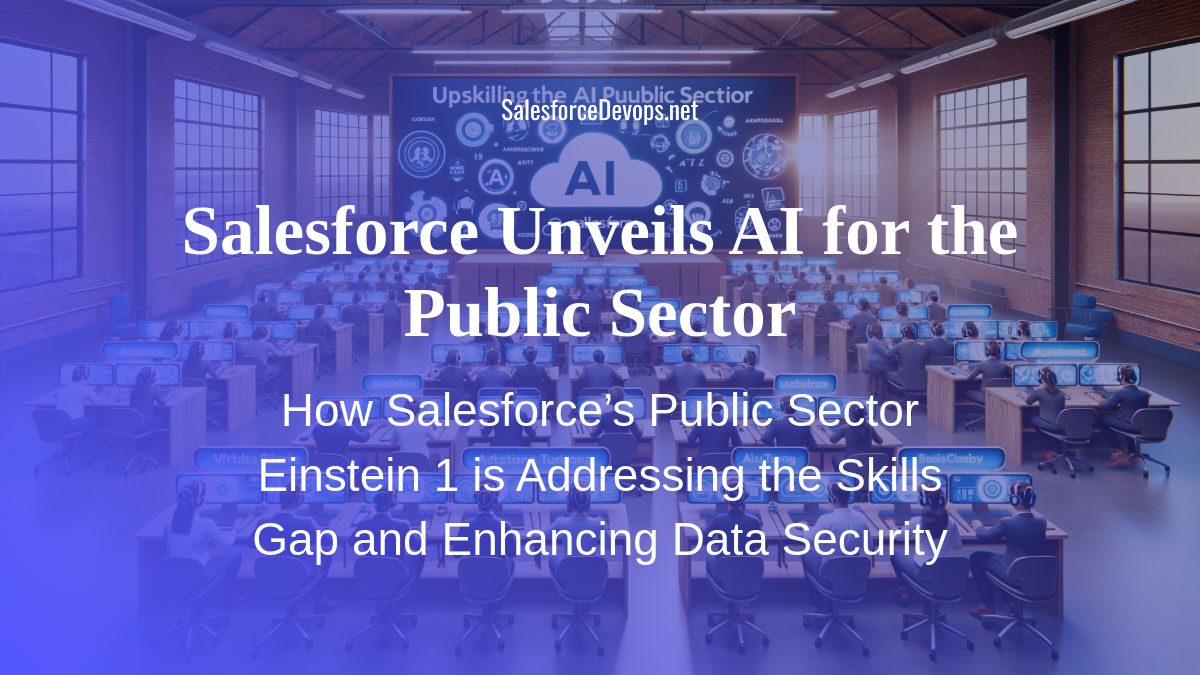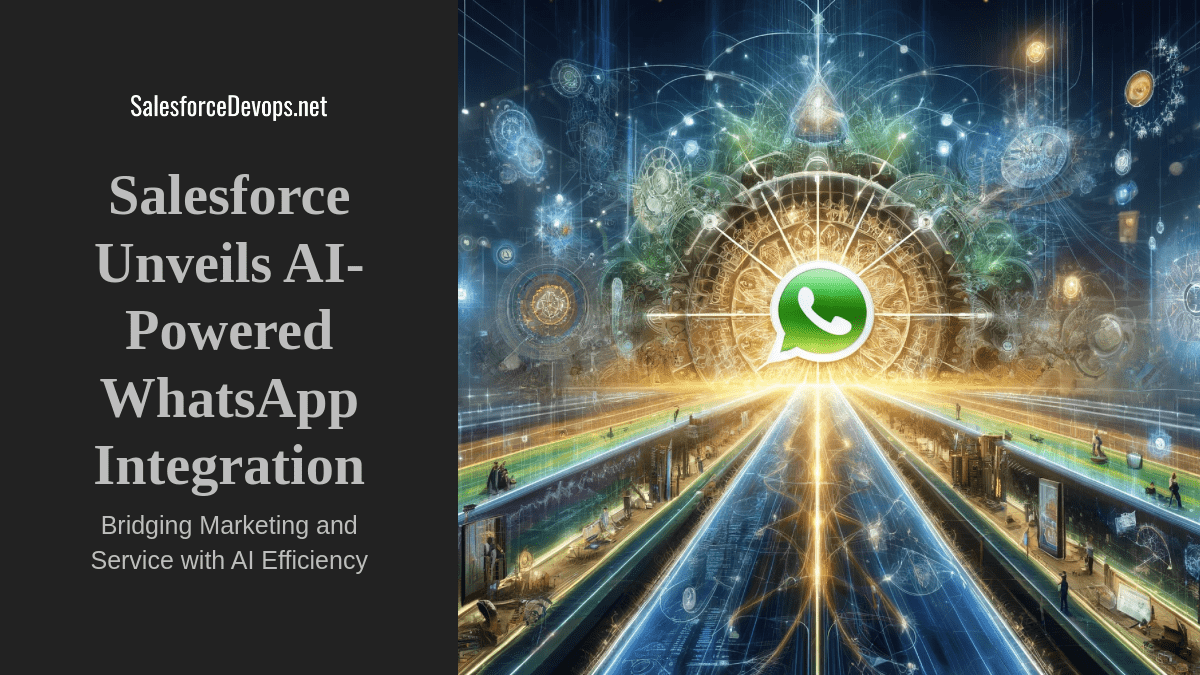Salesforce Delivers on AI Promises with Einstein 1 Studio Launch
Salesforce today announced the launch of Einstein 1 Studio at TrailblazerDX 2024 in San Francisco, marking a significant milestone in the company’s AI journey. The release comes just six months after the initial promises made at Dreamforce, showcasing Salesforce’s commitment to delivering on its AI roadmap. As Clara Shih, CEO of Salesforce AI, stated, “Einstein 1 Studio gives admins and developers the flexibility to build and customize AI experiences tailored to the specific requirements of their company.”
Table of contents
Einstein 1 Studio: Empowering Admins and Developers
Key Components
The Einstein 1 Studio launch introduces three powerful “Builder” tools designed to democratize AI development and customization:
- Prompt Builder (GA): This tool allows users to create and refine AI prompts using a point-and-click interface, making it easy to generate contextually relevant content and actions.
- Copilot Builder (Beta): With Copilot Builder, admins and developers can configure and customize Einstein Copilot by leveraging Apex, Flow, and MuleSoft APIs to extend its capabilities.
- Model Builder (GA): Model Builder provides the flexibility to connect to a variety of AI models, both proprietary and from leading service providers like Azure, Anthropic, and OpenAI.
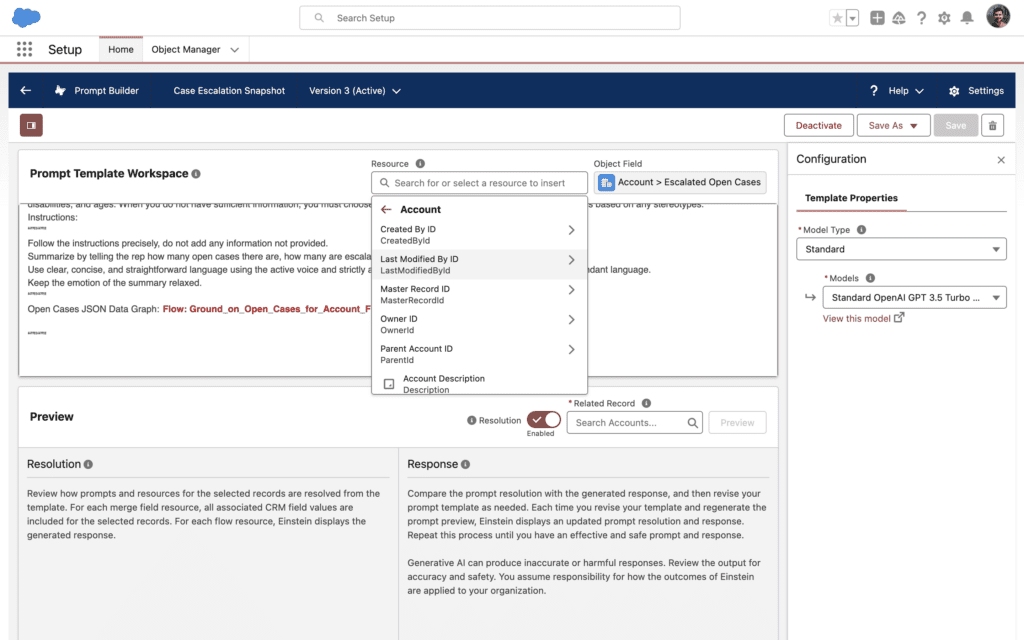
Integration with Data Cloud
One of the key aspects that sets Einstein 1 Studio apart is its seamless integration with Data Cloud. By grounding AI models in trusted customer data and metadata, Salesforce ensures that the generated insights and actions are not only relevant but also secure and reliable. This combination of low-code tools and robust data integration empowers admins and developers to create AI-driven experiences that are deeply tailored to their organizations’ unique needs.
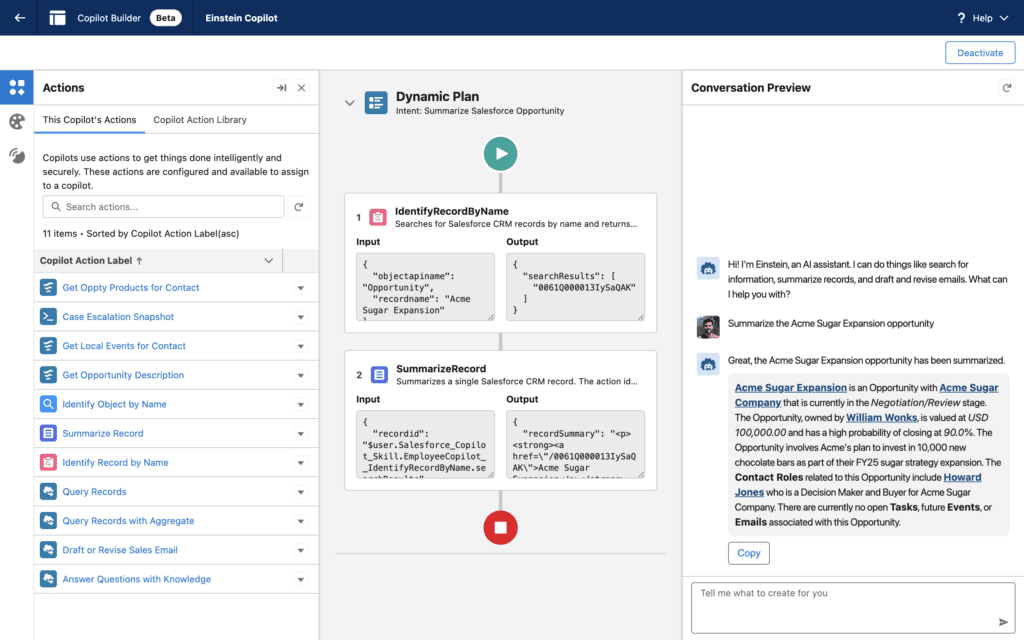
As Steinglass emphasized, “AI isn’t just changing how we build. It’s changing what we build. Today, without AI, I need to hard code every possible action in my code, every button, every workflow. AI is unlocking new possibilities for developers, enabling them to have a conversation with the customer at runtime and take action to create dynamic, hyper-personalized experiences.”
Model Builder: Salesforce’s AI Gateway
One of the key differentiators of Salesforce’s AI strategy is a flexible approach in Model Builder. Rather than locking customers into a single AI model or provider, Salesforce allows them to incorporate models from various leading companies, such as AWS, Azure, Anthropic, Cohere, and OpenAI.
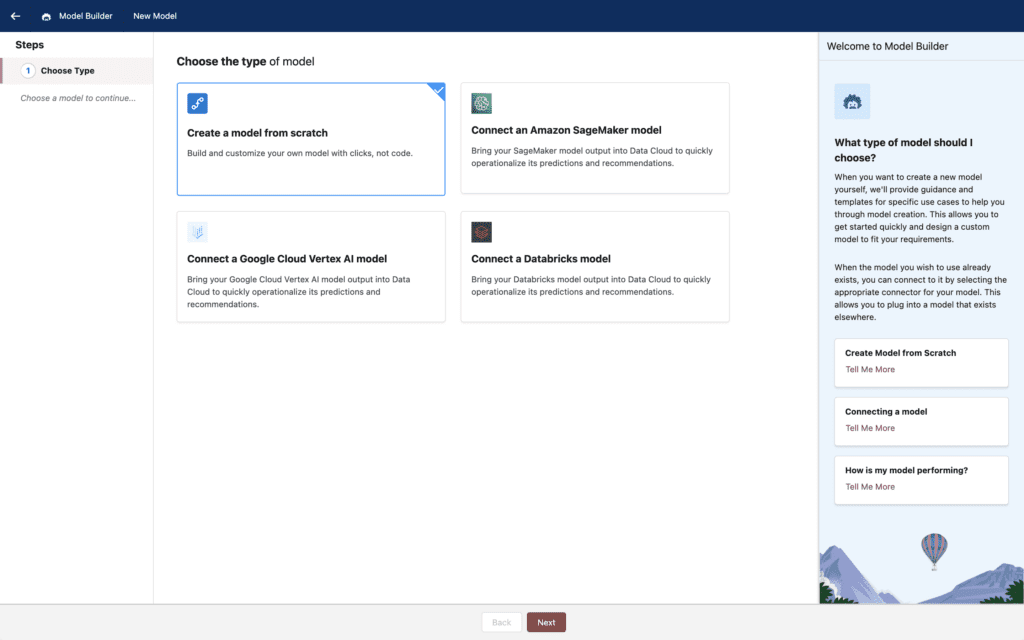
Steinglass stressed the importance of this open approach, stating, “Customers want that flexibility. They want that future-proofing.” By functioning as an AI service gateway, Model Builder allows users to choose the AI models that best suit their needs, ensuring they can adapt and evolve as the AI landscape continues to advance.
Democratizing AI
Prompts as a Service
Salesforce deserves recognition for swiftly developing a system that democratizes the power of prompts, making them easily accessible to users throughout an organization via the Salesforce interface. While it may seem like a simple concept, integrating a “Draft New Email” button within the New Email window empowers every Salesforce user to harness the potential of generative AI, rather than limiting it to a select group of prompt experts.
While the notion of individuals becoming prompt engineers and the dominance of the chat interface may be misguided, the solution lies in having dedicated prompt engineers who work behind the scenes, acting as consultants to perfect prompts for specific use cases. Once refined and tested, these prompts can be seamlessly deployed to end-users in the form of intuitive buttons or other user-friendly interfaces.
As the pioneer of Software as a Service (SaaS), Salesforce is now at the forefront of introducing Prompts as a Service in the enterprise AI landscape. Just as SaaS revolutionized software delivery by making it more accessible and cost-effective, Prompts as a Service has the potential to democratize AI by enabling organizations to leverage the power of prompts without requiring extensive technical expertise from every user.
Empowering Trailblazers
Salesforce’s commitment to democratizing AI extends beyond the development of tools like Einstein 1 Studio. The company recognizes that empowering users with the right skills and knowledge is crucial to the successful adoption and implementation of AI technologies. This is where Trailhead, Salesforce’s online learning platform, and the Trailblazer community play a vital role.
With the launch of Einstein 1 Studio, Salesforce has introduced new AI-focused content on Trailhead, including courses on Einstein Copilot and Prompt Builder. These courses aim to equip admins and developers with the knowledge and practical experience needed to customize and integrate AI capabilities into their Salesforce applications.
Steinglass highlighted the platform’s success, stating, “I am really excited about the opportunity for our Trailblazers to be able to leverage these tools and to be able to do AI at their own companies. We’re seeing a surge in people getting the certifications and engaging with the learning platform.”
Trailhead’s accessible and hands-on approach to learning enables users of all skill levels to get started with AI. As John Kucera, SVP of Product Management at Salesforce, noted, “If you can write a mail merge email, you can write a prompt.” This low barrier to entry, combined with the practical guidance provided by Trailhead, empowers a broad range of users to incorporate AI into their workflows.
Customer Perspective: Baca Systems
To understand the real-world impact of Salesforce’s AI innovations, it’s valuable to consider the perspective of customers like Baca Systems. Andrew Russo, a Salesforce Architect from Baca Systems, shared insights into the company’s journey with Salesforce’s generative AI tools.
Russo experienced significant improvements in email open rates after implementing Salesforce’s AI-powered Sales Email tool: “We started to see an increase in open rates on our emails when we did it. Almost 2x open rates compared to the month prior when we were just using people writing the emails themselves. And open rates are attributed just to the subject line itself, not even the content, but the content we started to see an increase in replies to our emails.”
By using generative AI to create contextually relevant email subject lines, Baca Systems was able to capture their recipients’ attention more effectively. The AI-generated subjects incorporated pertinent information, such as industry associations or specific topics of interest, making the emails more engaging and enticing to open.
Looking ahead, Russo explored potential future use cases that combine IoT data with generative AI: “Looking out to the future, if we bring in IoT data from all our customer machines into Data Cloud, we can unlock amazing insights. We can then look at when something is going to fail and have Data Cloud send that over to Salesforce. So now when Salesforce sees something looks wrong, it can use generative AI to parse through the open cases and see if we already have a case open for that issue.” This vision of predictive maintenance and proactive customer service showcases the transformative potential of AI when combined with robust data integration.
New Salesforce AI Research
Salesforce recently released two research studies that provide insights into the current state of AI adoption and its impact on the workforce. The first study, titled “AI Balancing Act,” surveyed 600 IT professionals to understand the challenges and priorities they face in implementing generative AI.
AI Balancing Act Study
The first study, titled “AI Balancing Act,” surveyed 600 IT professionals to understand the challenges and priorities they face in implementing generative AI. Key findings include:
- 88% of IT professionals claim they can’t keep up with AI-related requests from business leaders who are pushing for rapid generative AI implementation.
- 9 in 10 IT professionals say generative AI has forced them to re-evaluate their technology strategy.
- IT teams are grappling with concerns around data security, data quality, and the need for skilled resources while trying to balance the speed of AI implementation.
- The C-suite is identified as the #1 influencer demanding fast AI implementation, often prioritizing speed over security and data quality.
Slack Workforce Lab Study
The second study, conducted by Slack’s Workforce Lab, examined the adoption of AI tools in the workplace and their impact on productivity. The research revealed:
- 1 in 4 desk workers have tried AI tools for work as of January 2024, a 24% increase from the previous quarter.
- Around 80% of AI users report improved productivity, with writing help, workflow automation, and content summarization being the most valuable applications.
- Desk workers at companies with AI usage guidelines are six times more likely to experiment with AI tools compared to those without guidelines.
- On average, desk workers spend 41% of their time on low-value, repetitive tasks, presenting an opportunity for AI and automation to redirect their focus towards higher-value activities.
These research findings underscore the growing demand for AI-powered solutions in the workplace and the challenges organizations face in balancing the speed of adoption with data security and quality concerns. The studies also highlight the importance of providing clear AI usage guidelines to encourage adoption and the potential for AI to significantly enhance productivity by automating low-value tasks.
Stability is Good
Salesforce’s launch of Einstein 1 Studio and the accompanying AI innovations marks a significant milestone in the company’s journey to deliver on its promises. The consistency in branding and product naming, along with the prompt availability of features introduced at Dreamforce, shows Salesforce’s commitment to following through on its roadmap.
However, pricing stays a point of uncertainty. Currently, access to Einstein 1 Studio is limited to Ultimate Edition users, who must pay an added $75 per user per month for Sales or Service features. Furthermore, customers who choose to use their own model hosting will incur added costs from external service providers. With Ultimate Edition licenses being only a small part of Salesforce’s total customer base, users may find themselves priced out of these AI capabilities in the short term.
Pricing Pressure Remains
The pressure on major tech companies like Salesforce, Microsoft, and Google to keep high prices and justify investor expectations for AI adoption is substantial. By tying AI access to its more expensive licensing tiers, Salesforce may inadvertently create opportunities for third-party solutions to fill the gap.
As some users come to terms with the fact that they may not be able to afford Salesforce’s generative AI offerings, they may seek alternative solutions that still integrate with their Salesforce data. In some cases, this could lead users to consider investing in competing products like Microsoft Copilot, using Salesforce connectors to bring metadata into the Microsoft Graph ecosystem.
The year 2024 is shaping up to be a pivotal moment for enterprise AI, where vendors must show tangible value and deliver on their promises. With Salesforce staking its claim on a foundation of metadata and private customer data, the company has positioned itself as a leader in the space. However, competitors such as OpenAI, Microsoft, and others are expected to challenge Salesforce’s dominance, setting the stage for a dynamic and rapidly evolving enterprise AI landscape.
